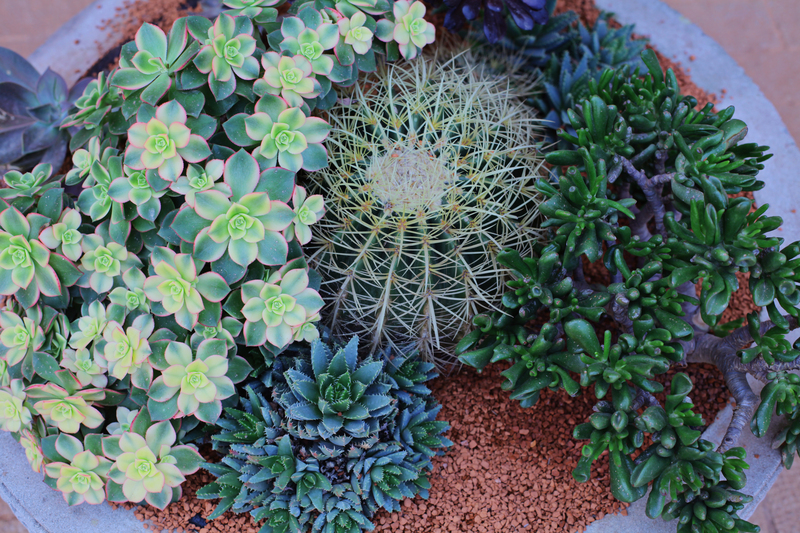When to Incorporate Manure into Garden Soil
Posted on 21/11/2024

Incorporating manure into garden soil is a time-tested method for enhancing soil fertility and promoting healthy plant growth. The approach, however, involves a strategic understanding of timing, soil conditions, and the types of manure used. Whether you're a beginner or an experienced gardener, understanding the right time to incorporate manure can take your gardening results to the next level.
[HTAG0]
Before delving into the best time to incorporate manure, it's essential to understand the different types of manure available:
- Cow Manure: Rich in nitrogen but needs to be aged or composted to avoid burning plants.
- Horse Manure: Often contains weed seeds and must be composted before use.
- Chicken Manure: Extremely high in nitrogen and should always be aged or composted. It's considered a "hot" manure.
- Sheep Manure: Typically more balanced and less potent than chicken manure, but still should be composted.
[HTAG1]
Timing is critical when it comes to incorporating manure into your garden soil. Here are some key periods to consider:
[HTAG2]
Fall is typically considered the optimal time to incorporate manure into garden soil. Applying manure in the fall gives it ample time to break down and incorporate nutrients into the soil, reducing the risk of nitrogen burn on your plants. Spreading manure in the fall also allows winter rains and snow to leach away excess salts that can harm plants.
[HTAG3]
If you didn't get a chance to apply manure in the fall, early spring is the next best option. However, it's crucial to use well-composted manure to prevent it from being too "hot" for young plants. Spread the manure at least two weeks before planting to allow it to integrate into the soil.
[HTAG4]
Whether you're preparing a garden bed or a vegetable plot, incorporating manure during soil preparation ensures that nutrients are well-mixed with the soil. This is particularly important for heavy-feeding plants like tomatoes and corn.
[HTAG5]
[HTAG6]
- Rich Nutrients: Manure is a potent source of nitrogen, phosphorus, and potassium which are essential for plant growth.
- Improves Soil Structure: Organic matter from manure improves soil aeration and moisture retention.
- Recycles Waste: Using animal waste as manure helps in recycling and reducing environmental waste.
- Supports Microbial Activity: Manure promotes microbial activity in the soil, which is essential for healthy plant growth.
[HTAG7]
- Risk of Pathogens: Untreated or improperly composted manure can harbor harmful pathogens.
- Weed Seeds: Some types of manure, particularly horse manure, can contain weed seeds that might sprout in your garden.
- Salinity: Chicken and other "hot" manures can increase soil salinity, harming sensitive plants.
- Labor-Intensive: Properly composting and incorporating manure can be labor-intensive and time-consuming.
[HTAG8]
- Test Your Soil: Conduct a soil test before adding manure to know its current nutrient levels and pH.
- Composting: Always compost manure thoroughly to eliminate pathogens and weed seeds.
- Quantity Matters: Avoid over-applying manure as it can lead to nutrient imbalances and soil toxicity.
- Mix Well: Ensure that manure is well-mixed into the top 6-8 inches of soil for effective nutrient distribution.
- Use Aged Manure: Opt for aged or composted manure to reduce the risk of "burning" your plants with excessive nitrogen.
[HTAG9]
Incorporating manure into garden soil requires thoughtful planning and attention to timing. Fall applications are generally best, but early spring and soil preparation times can also be effective. Understanding the type of manure you are using, its benefits, and potential drawbacks will optimize your garden's health and productivity.
[HTAG10]
Using manure as an organic soil amendment is a powerful way to enhance soil fertility and promote robust plant growth. By understanding the best time to apply manure, and weighing the pros and cons, you can make informed decisions that benefit your garden in the long run. Remember to follow essential tips for soil testing, composting, and proper application to make the most out of this natural resource.

Latest Posts
Must-Try Planting Concepts for a Beautiful Autumn Garden
DIY Guide to Perfectly Sharpening Garden Shears at Home
Essential Techniques for Maintaining Clean and Lush Artificial Grass
Transform Your Space With Meaningful Zen Garden Plant Choices




